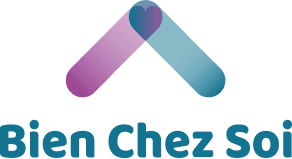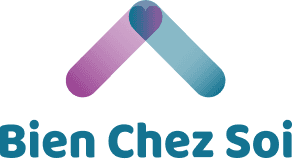Caring tips
What Income to Expect in Retirement?
Scroll down

4 September 2024
|
4 min
As retirement approaches, a crucial question that may be a source of concern is: what income can one rely on to ensure financial comfort in retirement? Between public pensions, private plans, and various available income sources, it is essential to understand your options and plan accordingly.
Sources of Income in Retirement
Quebec Pensions
Regarding public pensions, you will receive a base income from the Régie des rentes du Québec (RRQ) if you have contributed sufficiently to the system. As an employee, you will notice a mandatory contribution on each paycheck. It’s important to view this positively because the more you contribute, the higher your retirement benefits will be. The amount of the RRQ retirement pension depends on your salary, the number of years of contributions, and the age at which you apply.
Old Age Security (OAS)
You may also be eligible for the Old Age Security pension under certain conditions:
- You must be at least 65 years old.
- You must have lived in Canada for at least 10 years after reaching age 18.
- You must have legal status in Canada.
If your residence in Canada is less than 40 years since the age of 18, you will receive a partial benefit calculated based on the number of years spent in Canada out of a total of 40. Additionally, if you are receiving Old Age Security and have a low income, you might be eligible for the Guaranteed Income Supplement. To check your eligibility, you can visit the Government of Canada website.
Home Support Tax Credits
For individuals aged 70 and over, staying at home becomes more accessible with Revenu Québec, which now offers a monthly or annual reimbursement for home service expenses. This reimbursement will gradually increase to 40% over the next five years. Whether it's for specialized care, help with household tasks, or maintenance services, all these services are eligible for Revenu Québec tax credits. Another way to save on Bien Chez Soi services when you retire!
Private Retirement Plans
Private retirement plans offer workers supplemental income in addition to public pension plans once retired. These include various types such as the Registered Retirement Savings Plan (RRSP) subscribed to by the worker themselves, as well as employer-sponsored plans. Here are some examples:
- Complementary Retirement Plan (CRP)
- Superannuation Plan
- Group Registered Retirement Savings Plan (Group RRSP)
For details on all types of plans, refer to this page on the Government of Quebec website.
Managing Personal Savings
Registered Retirement Savings Plan (RRSP)
Contributing to your RRSP is crucial for effective retirement planning for several reasons:
- Tax Benefits: RRSP contributions are tax-deductible, meaning you can reduce your taxable income and potentially lower the amount of tax you owe each year. This allows for short-term savings while building a long-term retirement fund.
- Investment Growth: Funds deposited into an RRSP can be invested in a variety of vehicles such as stocks, bonds, mutual funds, etc. The income generated by these investments grows tax-deferred while they remain in the RRSP, allowing your retirement savings to grow more effectively.
- Tax Deferral: Income generated in an RRSP is not taxable as long as it remains in the account. This means you only pay taxes on this income when you withdraw it, usually in retirement when your tax rate is often lower.
- Building a Retirement Fund: By regularly contributing to your RRSP throughout your career, you accumulate a solid retirement fund that can complement public pension benefits and provide stable income once you stop working.
Tax-Free Savings Account (TFSA)
Contributing to your TFSA is essential for retirement planning, offering tax benefits, investment growth without taxation, withdrawal flexibility, and complementarity with other savings accounts. Here are some notable differences between the TFSA and the RRSP:
- Withdrawal Flexibility: Unlike the RRSP, where withdrawals are generally taxable and subject to restrictions, TFSA withdrawals can be made at any time and for any reason without tax consequences. This allows easy access to your money for unexpected expenses or short-term projects without affecting your long-term retirement planning.
- Tax Benefits: TFSA contributions are not tax-deductible, but income generated within the account, such as interest, dividends, and capital gains, is tax-free, even upon withdrawal. This provides significant tax flexibility as TFSA withdrawals are not taxable, allowing you to use your funds effectively without worrying about tax implications.
Investing with a Financial Advisor
Investing with a financial advisor is crucial for effective retirement planning by benefiting from their professional expertise, ability to assess individual needs and goals, capacity to customize investment strategies, risk management, and ongoing monitoring to adapt to changing circumstances.
Financial advisors have in-depth knowledge of investment and financial planning. Their understanding of financial markets, investment products, and retirement planning strategies helps individuals make informed decisions and develop strategies tailored to their long-term financial goals.
Financial Security for Choice
Bien Chez Soi offers a comprehensive range of home support services to help you fully enjoy your retirement in the comfort of your home.
Moreover, if you are retired and looking for flexible work that allows you to choose the number of hours you wish to work each week, consider applying to Bien Chez Soi. We are currently seeking motivated and welcoming candidates to join our dynamic team. Join us today for an opportunity to positively contribute to others' lives while benefiting from a flexible schedule that suits your needs.




